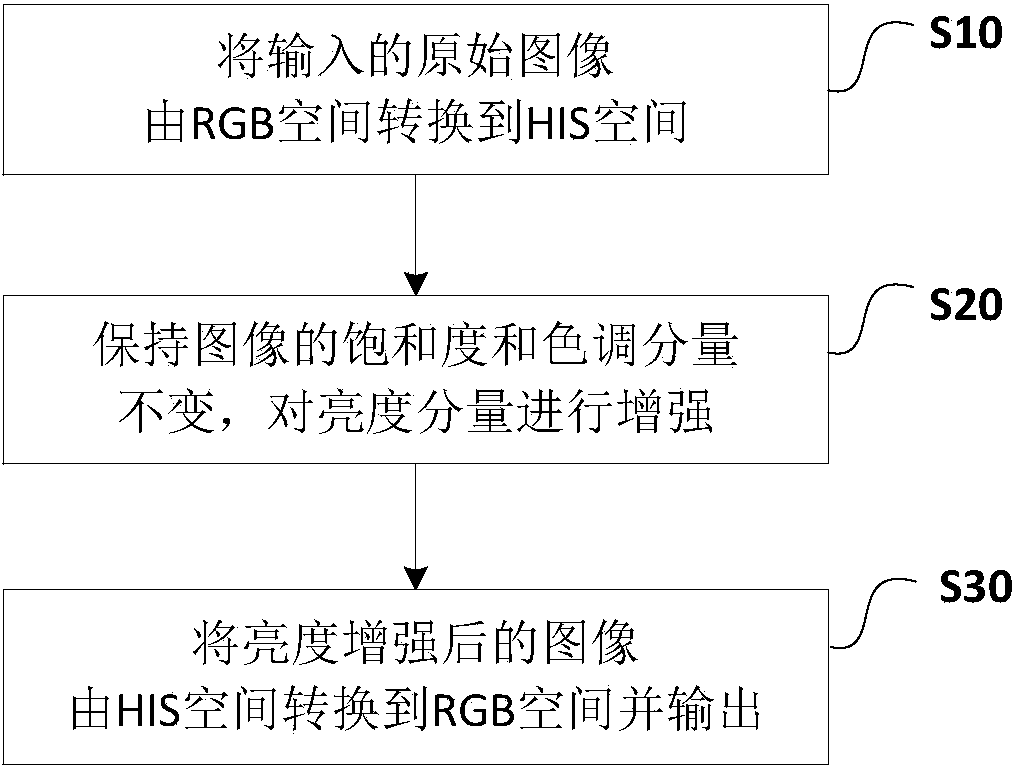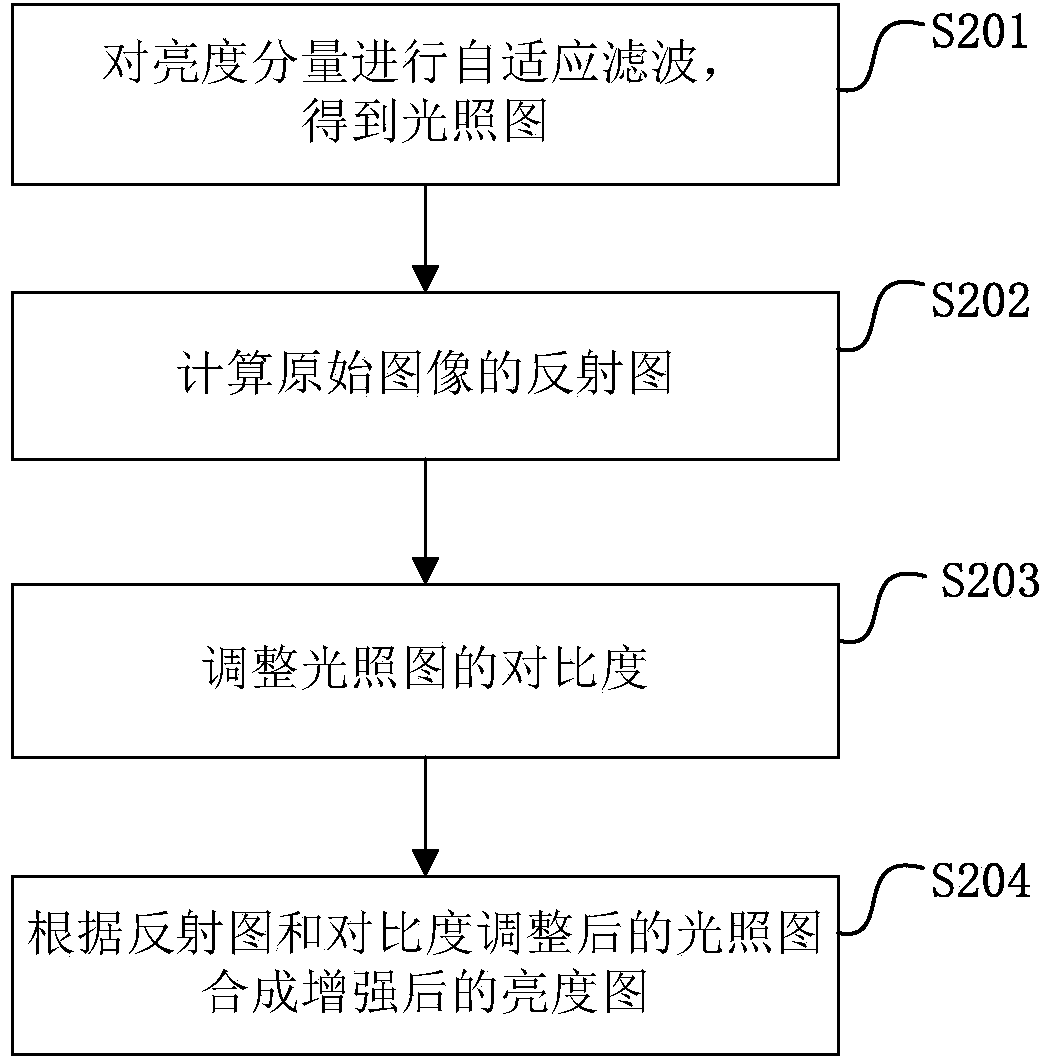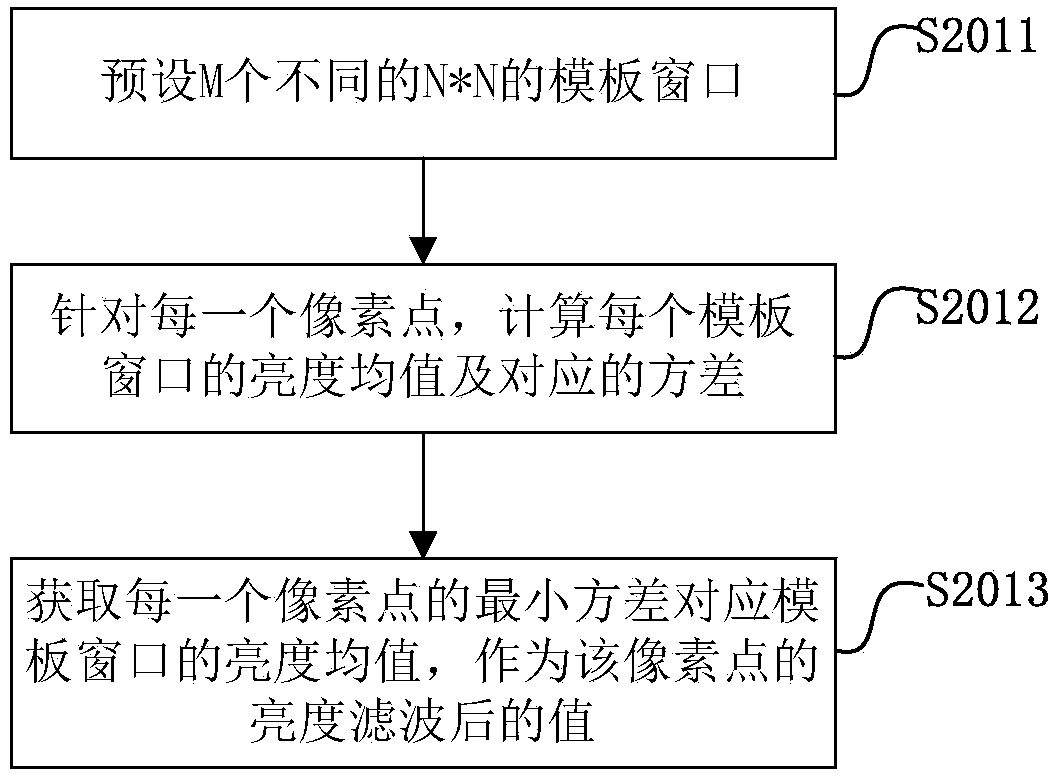Low-illumination image enhancement method and system
An image enhancement and low-illumination technology, applied in the field of image processing, can solve problems such as lack of universality, large amount of calculation, and difficulty in real-time processing of high-definition images
- Summary
- Abstract
- Description
- Claims
- Application Information
AI Technical Summary
Problems solved by technology
Method used
Image
Examples
Embodiment 1
[0066] Such as figure 1 As shown, a low-illuminance image enhancement method provided by an embodiment of the present invention includes the following steps:
[0067] S10. Convert the input original image from RGB space to HIS space.
[0068] Preferably, the following formula can be used for conversion:
[0069] I = R + G + B 3 - - - ( 1 )
[0070] H = arccos { 1 2 [ ( R - G ) + ( R - B...
Embodiment 2
[0097] Such as image 3 As shown, a kind of luminance adaptive filtering method that the preferred embodiment of the present invention provides, this method is based on template window operation, comprises the following steps:
[0098] S2011, preset M different N*N template windows.
[0099] Among them, M is an integer greater than 1, and N is an odd number including 3 or more; the value in the template window is composed of 0 and 1, and the polygons composed of points with a value of 1 are different in shape, and all polygons are combined to cover the entire template. window;
[0100] Specifically, M different N*N template windows are set in advance, the values in the template window are composed of 0 and 1, M is an integer greater than 1, N is an odd number including 3 or more, and the M different N*N The shape of polygons composed of points with a value of 1 in the template window of N is different. The principle of polygon selection is that all polygons should cover th...
Embodiment 3
[0111] Such as Figure 5 As shown, a method for adjusting the contrast of an illumination map provided by a preferred embodiment of the present invention includes the following steps:
[0112] S2031. Eliminate pixels whose proportions of both ends of the illumination value in the illumination map are smaller than a preset proportion value.
[0113] Specifically, removing pixels whose light values account for a small proportion can further eliminate the influence of noise, and the preset proportion value is generally 1% of the pixels.
[0114] S2032. Calculate the average illumination value of the remaining pixels.
[0115] S2033. Subtract the average illumination value from the illumination value of each pixel of the remaining pixels to obtain an illumination difference map.
[0116]S2034. Multiply the illumination difference of each pixel in the illumination difference map by a preset adjustment factor.
[0117] Wherein, the preset adjustment factor takes a value between...
PUM
 Login to View More
Login to View More Abstract
Description
Claims
Application Information
 Login to View More
Login to View More - R&D
- Intellectual Property
- Life Sciences
- Materials
- Tech Scout
- Unparalleled Data Quality
- Higher Quality Content
- 60% Fewer Hallucinations
Browse by: Latest US Patents, China's latest patents, Technical Efficacy Thesaurus, Application Domain, Technology Topic, Popular Technical Reports.
© 2025 PatSnap. All rights reserved.Legal|Privacy policy|Modern Slavery Act Transparency Statement|Sitemap|About US| Contact US: help@patsnap.com



